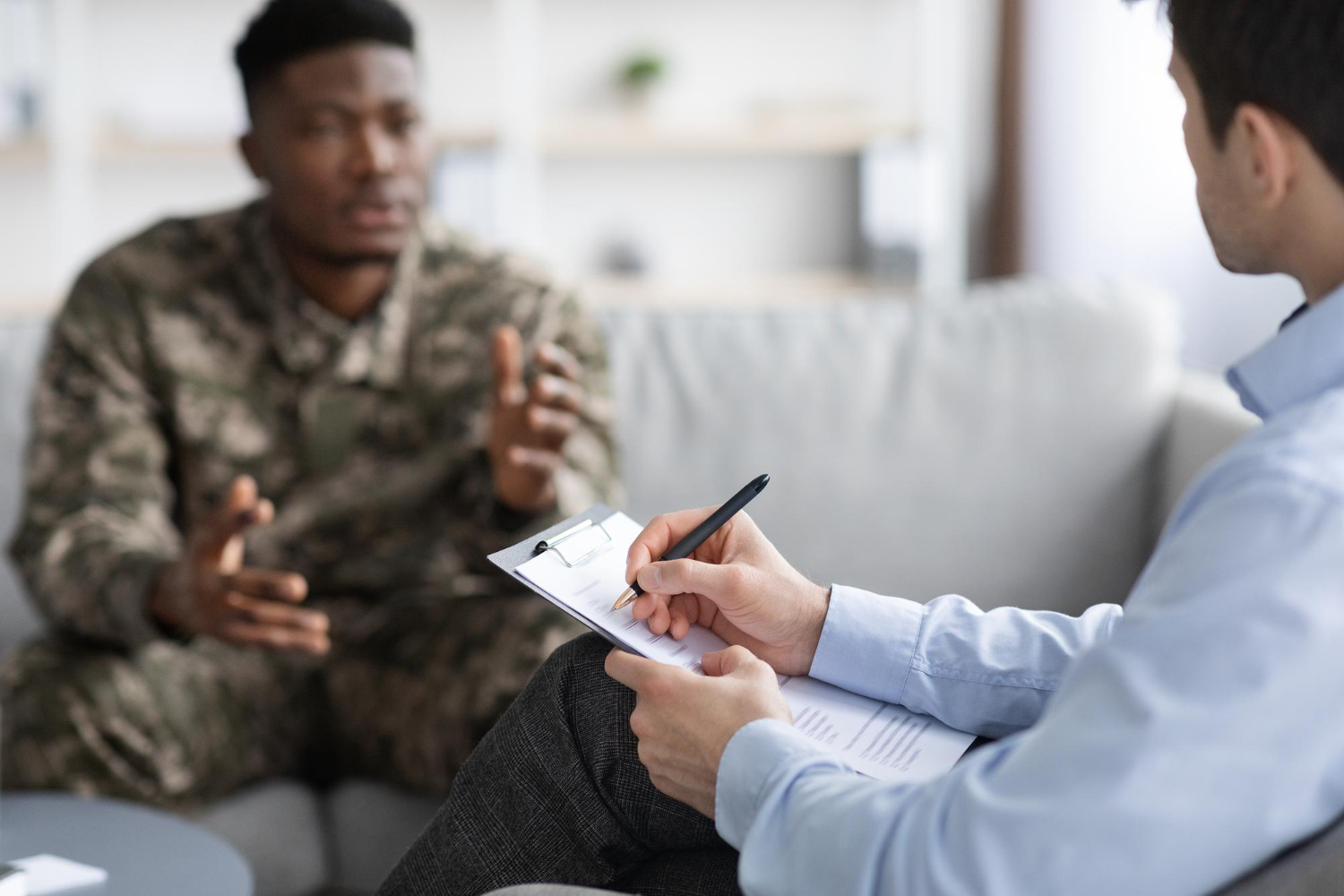Defining ‘valor’ may be a challenging thing to do, even for veterans. Despite the word being typically used to address veterans and their acts of service, misunderstandings may still arise about what ‘valor’ truly means. As veterans transition to civilian life, they face a new set of challenges such as trauma, PTSD, addiction, and mental health conditions that redefine the ‘valor’ and strength outside their service. In this blog post, we will discuss how admitting the need to seek help and embracing vulnerability are signs of true ’valor’ and may be the first step towards recovery.

For individuals in service, ‘valor’ usually means bravery in combat or threatening situations while remaining calm. But during service, personal needs and challenges are often neglected to focus on this goal. While this doesn’t entail that active service members don’t experience trauma, anxiety, depression, and other health conditions, it only highlights the fact that they make a conscious effort to suppress or neglect these feelings, often taking a toll on their personal well-being.
One of the most common ways to ‘push down’ these challenges is the use of drugs or alcohol to “numb” the sensations and “disarm” stressors brought about by these challenges. Moreover, an active drinking culture during service may normalize the use of addictive substances. But for veterans who are transitioning into civilian life, might continue to engage in these practices, resulting in more health challenges during the recovery process.
The constant attempt to uphold ‘valor’ during and after service not only jeopardizes a veteran’s mental and emotional health during recovery, but also leaves them without practiced strategies to effectively identify and manage these challenges as they transition to civilian life. Adopting a new definition of ‘valor’ might be the key to equipping veterans with a new way of facing these challenges and navigating through a successful healing process.
Finding a New Meaning of Valor: The First Step Towards Recovery
As veterans transition to their new lives as civilians, they need to overcome these personal challenges while also dealing with the various external stigma and expectations that can impact their perspective of what is true ‘valor’. The first step to finding a new meaning of ‘valor’ is to acknowledge the challenges that come with the old definitions and that admitting the need for help is also a sign of true ‘valor’ for veterans in their new lives.
‘Valor’ in civilian life after a time on active duty is no longer the ability to suppress weakness or vulnerability in times of danger but rather the capacity to willingly acknowledge that personal needs should be addressed, and weakness and emotional vulnerability should be embraced and faced head-on. As veterans explore the new-found definition of ‘valor’ by first acknowledging the need for help and support, they can prioritize resilience and bounce back from stresses and obstacles, commit to self-care and personal growth, and confront and challenge stigmas for themselves and the whole veteran community.
Embracing vulnerability and seeking help have a transformative impact on an individual’s journey to healing and recovery. No veteran must brave the new ideas of ‘valor’ alone, as there are communities and professionals available that will aid in the first step towards effective healing.
Taking the First Step into Treatment with California Recovery Center
Exploring a new kind of valor might feel foreign and dreadful, especially to veterans who take pride in the kind of valor from their once active line of duty in service. ‘Valor’ has many definitions, and it is always contextual. Admitting the need for help while transitioning to civilian life is a crucial first step towards effective healing and recovery.
Here at the California Recovery Center, we are prepared to help you navigate the different definitions of ‘valor’ to create an effective approach towards healing. Our line of treatments offers specialized veteran substance abuse programs that are evidence-based, including detox, therapy, and ongoing support for our heroes returning from the battlefield. If you or your loved one is a veteran struggling to transition into civilian life, we eagerly welcome you with open arms and a plan for your recovery.
Learn more by reaching out to us at (866) 864-1986.




